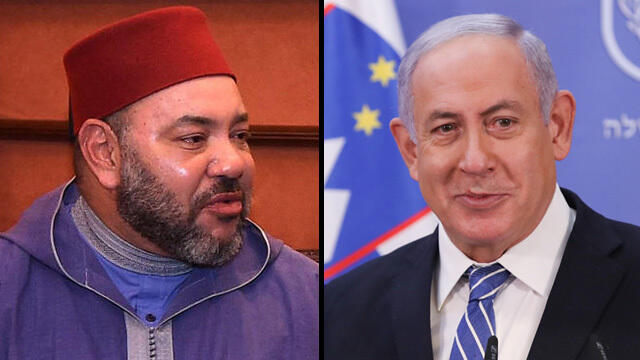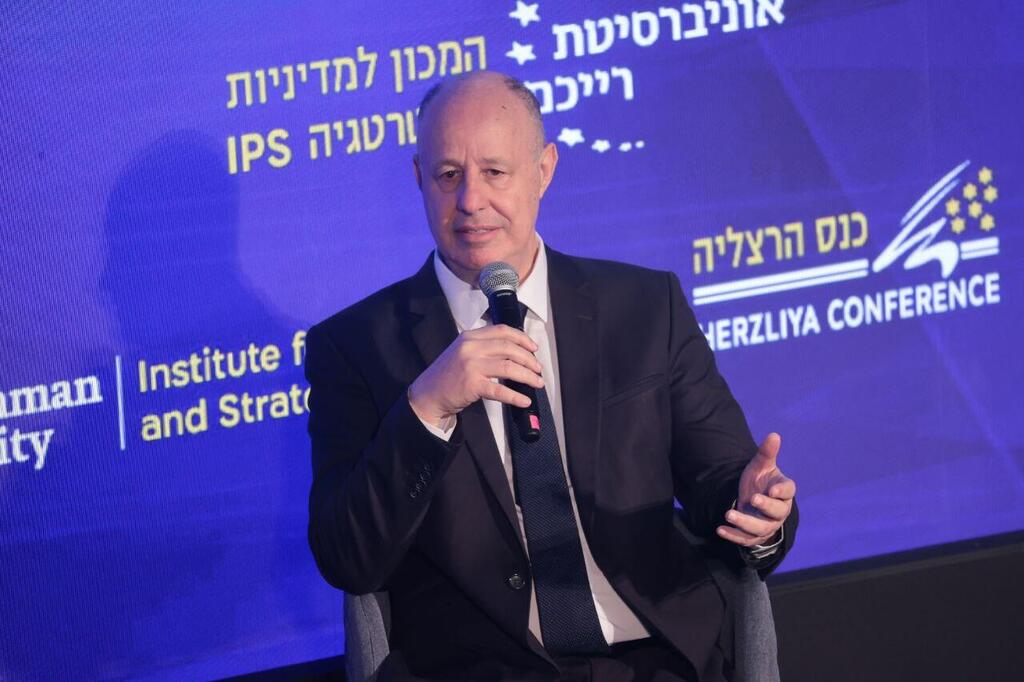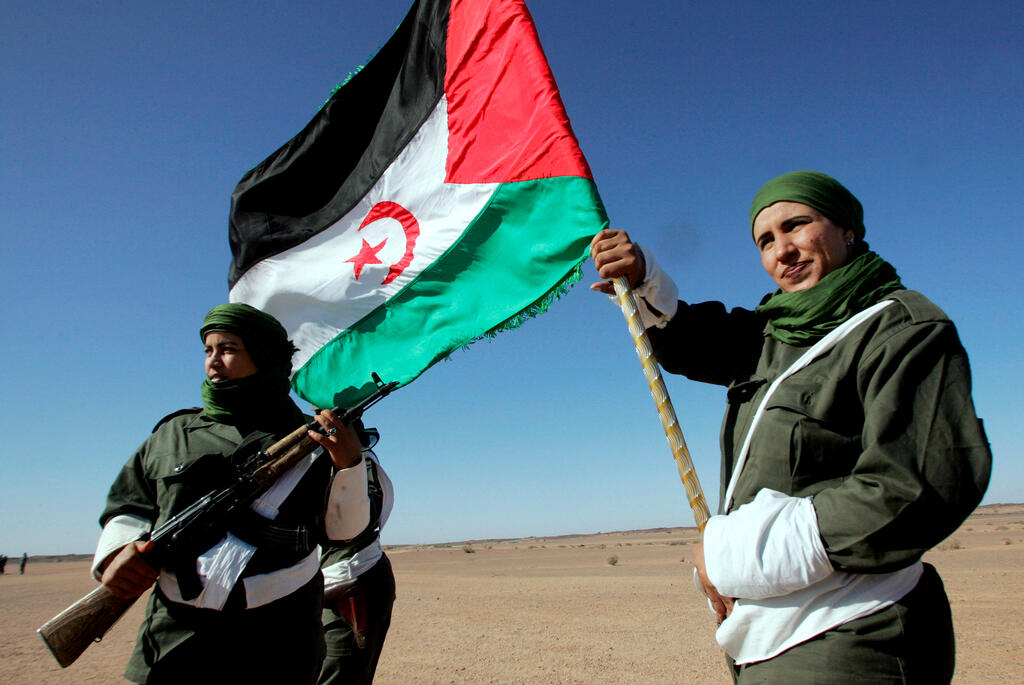Moroccan King Mohammed VI invited Prime Minister Benjamin Netanyahu to visit Morocco, his office announced on Wednesday
MOROCCAN KING INVITES NETANYAHU TO RABAT
Read more:
The invitation was made via a letter from the king who thanked Jerusalem for its intent to recognize Morocco’s sovereignty over Western Sahara, and added that such a visit "will open up new possibilities for bilateral relations between Morocco and Israel."
“I would like to express my sincere thanks and deep appreciation for your letter informing me of the State of Israel’s decision to recognize the sovereignty of the Kingdom of Morocco over its Sahara, and to favorably consider the opening of a Consulate in the city of Dakhla,” the king said in a statement.
“The momentum characterizing our ties is unprecedented, be it in terms of the exchange of visits by officials and the business community, the development of the bilateral framework, the diversification of our cooperation or the consolidation of trade relations."
The king also expressed his appreciation for the strong human connections between Morocco and Israel, particularly through Israel's sizeable Jewish community of Moroccan origin, which has played a significant role in this decision.
Following the invitation, National Security Adviser Tzachi Hanegbi and Moroccan Foreign Minister Nasser Bourita agreed to coordinate a date in the near future for Prime Minister Netanyahu's first trip to Morocco.
On Monday, Israel recognized Morocco's sovereignty over Western Sahara, more than 40 years after Morocco annexed the region, which has been a longstanding conflict over control for several decades.
The recognition of Western Sahara was a condition set by Morocco to upgrade its representation in Israel to an embassy status. Also at stake was the hosting of the Negev Forum in Morocco, which had been postponed multiple times, most recently announced to be deferred until after the summer due to security tensions in the West Bank.
The peace agreement between Israel and Morocco in 2020 was achieved with the approval of then-U.S. President Donald Trump, who recognized Moroccan sovereignty over Western Sahara, a recognition granted in December of the same year. "Morocco recognized the United States in 1777, so it is appropriate that we recognize its sovereignty over Western Sahara," declared Trump, in a policy shift from Washington that made the U.S. the first Western country to acknowledge Western Sahara as part of Morocco. His successor in office, President Joe Biden, did not revoke this recognition.
The conflict over control of Western Sahara, a vast desert region along the Atlantic Ocean, erupted in 1975 after the Spanish colonial forces withdrew from the area. Morocco claimed ownership of the territory and officially annexed it in 1979. For 16 years, a war was waged there against the Polisario Front, which sought independence for the region and declared such independence in 1976, announcing the establishment of the Sahrawi Arab Democratic Republic.
Today, the Moroccan government controls about three-quarters of Western Sahara and holds authority over phosphate reserves and fishing areas there. The Polisario Front controls the remaining territory.
Morocco claims that Western Sahara is an integral part of its kingdom and has offered autonomy to the locals under Moroccan rule, but it consistently emphasizes that it will not relinquish sovereignty over the region.
The Polisario Front, on the other hand, demands a referendum on the self-determination rights of the region's inhabitants, as stipulated in the ceasefire agreement reached in 1991. The vote has been repeatedly postponed due to disagreements between the parties, mainly concerning the wording of the question to be presented to voters. Approximately 600,000 people live in Western Sahara.







